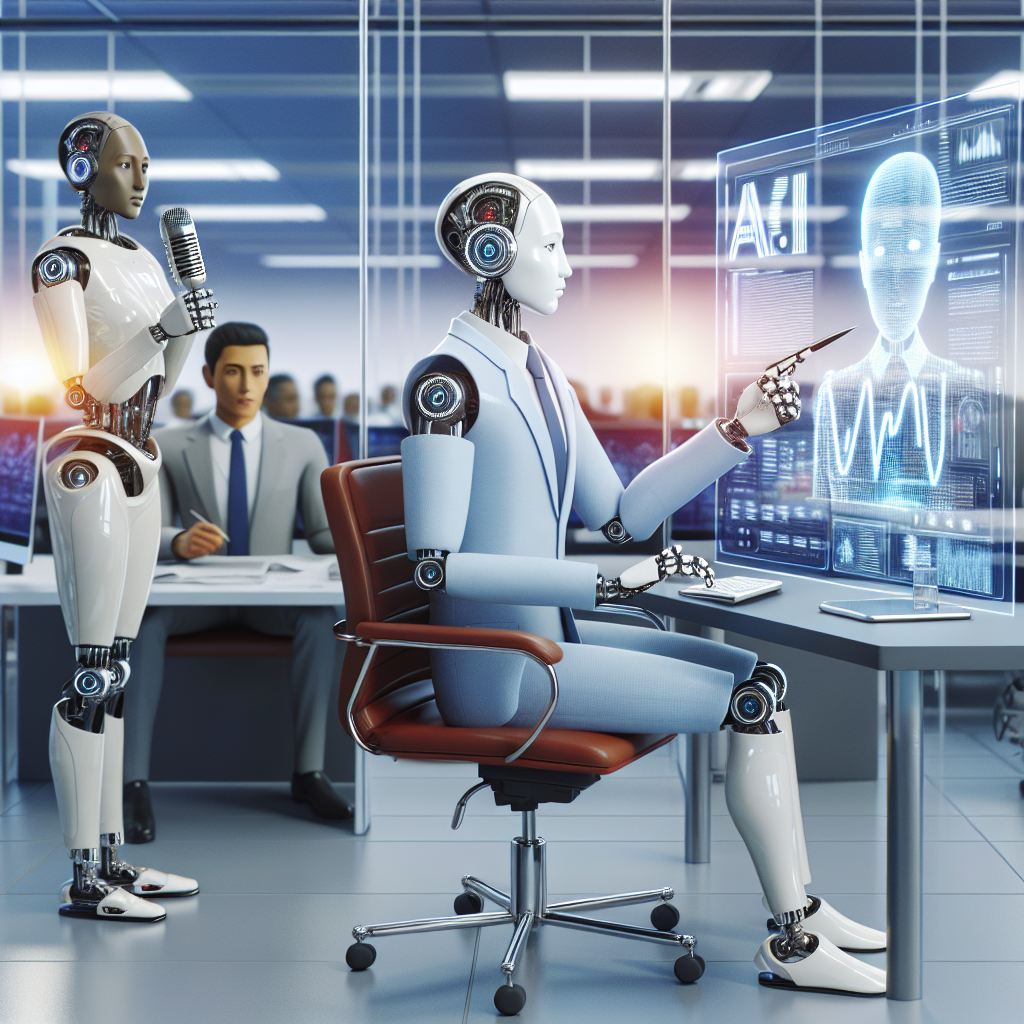In recent years, artificial intelligence (AI) has been making significant strides in various industries, including journalism. AI journalists, also known as robot reporters or automated journalists, are revolutionizing the way news is reported and distributed. These AI-powered systems are capable of collecting, analyzing, and disseminating news stories in a fraction of the time it would take a human journalist. This new technology is changing the face of reporting and raising questions about the future of journalism. In this article, we will explore the rise of AI journalists, their impact on the industry, and address some frequently asked questions about this emerging trend.
The Rise of AI Journalists
AI journalists are computer algorithms that are programmed to write news stories based on data inputs. These algorithms can sift through massive amounts of data, such as financial reports, sports statistics, or weather forecasts, and generate coherent and readable news articles in a matter of seconds. These articles can cover a wide range of topics, from breaking news and sports updates to financial analysis and weather reports.
One of the key advantages of AI journalists is their speed and efficiency. They can produce news stories much faster than human journalists, allowing news organizations to cover more topics and reach a wider audience. AI journalists are also able to work around the clock, producing news updates at any time of the day or night.
Another advantage of AI journalists is their ability to generate personalized content for readers. These algorithms can analyze user data and preferences to create customized news stories tailored to individual interests. This level of personalization can enhance reader engagement and loyalty, as readers are more likely to engage with content that is relevant to their interests.
AI journalists are also being used to cover niche topics that may not receive as much attention from traditional news outlets. For example, AI algorithms can generate news stories about local events, scientific discoveries, or industry trends that may not be covered by mainstream media. This allows readers to access a wider range of news and information that is tailored to their specific interests.
Impact on the Industry
The rise of AI journalists is reshaping the journalism industry in several ways. One of the most significant impacts is the automation of routine reporting tasks. AI journalists can generate news stories on a wide range of topics, freeing up human journalists to focus on more in-depth reporting, analysis, and investigative journalism. This can improve the quality of news coverage and allow journalists to spend more time on stories that require human insight and expertise.
AI journalists are also changing the way news is distributed and consumed. These algorithms can generate news updates in real-time, allowing news organizations to provide up-to-the-minute coverage of breaking news events. This can increase reader engagement and drive traffic to news websites, as readers seek the latest information on developing stories.
However, the rise of AI journalists has also raised concerns about the future of journalism. Some critics argue that AI journalists could lead to job losses in the industry, as news organizations rely more on automated reporting and fewer on human journalists. There are also concerns about the quality and accuracy of AI-generated news stories, as algorithms may not always capture the nuances and context of a story as effectively as a human journalist.
Frequently Asked Questions
Q: Are AI journalists replacing human journalists?
A: AI journalists are not replacing human journalists but rather complementing their work. These algorithms are being used to automate routine reporting tasks and provide real-time news updates, allowing human journalists to focus on more in-depth reporting and analysis.
Q: How accurate are AI-generated news stories?
A: AI journalists are capable of producing accurate and reliable news stories, as long as they are fed accurate data inputs. However, there is always a risk of errors or biases in AI-generated content, so it is important for news organizations to have human editors review and fact-check these stories.
Q: What are the ethical implications of AI journalists?
A: There are ethical considerations to take into account when using AI journalists, such as ensuring transparency about the use of automated reporting and disclosing when a news story has been generated by an algorithm. It is also important to monitor and address any biases or inaccuracies in AI-generated content.
Q: How can AI journalists benefit the journalism industry?
A: AI journalists can benefit the journalism industry by increasing the speed and efficiency of news reporting, providing personalized content for readers, and covering niche topics that may not receive as much attention from traditional news outlets. These algorithms can also help news organizations reach a wider audience and drive reader engagement.
In conclusion, AI journalists are changing the face of reporting and revolutionizing the journalism industry. These algorithms are capable of producing news stories at lightning speed, covering a wide range of topics, and providing personalized content for readers. While there are concerns about the impact of AI journalists on human journalists and the quality of news coverage, this emerging technology has the potential to enhance the way news is reported and distributed. As the use of AI journalists continues to grow, it will be important for news organizations to address ethical considerations and ensure the accuracy and reliability of AI-generated content.

